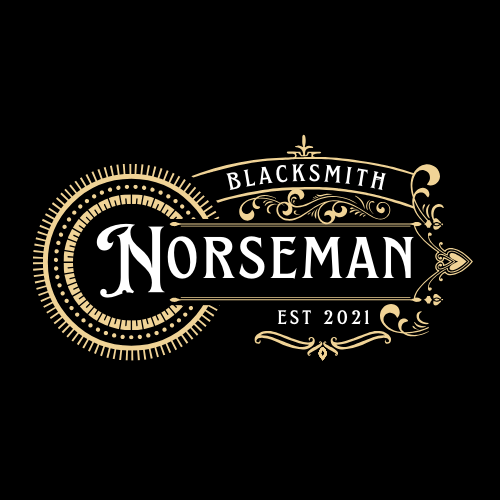FAQs
Knives
What are your knives made of?
Our knives are made from a range of different steels. We use stainless steels and carbon steel in varying grades and carbon content, whilst we also make our own Damascus with either or a combination of the two.
What is Damascus steel?
Damascus or pattern welded steel is made from many layers of steel being forged welded together done by repeatedly heating and hammering the layers of steel until they become one. This results in a very strong steel that holds an extremely good edge as well as showcasing some brilliant patters. This has historically been the way of making knife and sword blades. Our Damascus generally ranges from 60 through to 300 layers for stock items but we will custom build to your specifications.
What does a Rockwell rating mean?
A Rockwell rating is a rating for the strength of the steel and how resistant it is to penetration and deformation from another material. An HRC in the 40s to low 50s is fairly low on the scale for knives while an HRC in the mid 50’s to low 60’s is high and is the choice for most professional kitchens.
Why are your knives so expensive?
There are a lot of factors that come into the cost of a hand forged knife.
Quality materials – cheaper knives are often made from low quality steel which results in easier breakage and deterioration.
Long lasting – quality materials and proper forging and heat treating mean a stronger blade and handle.
Attention to detail – each knife being hand made by the one person means they put themselves into it at every stage and are always checking for accuracy and correctness in the bevel, the edge angle, preciseness of the tip and flush fitting of spacers and bolsters.
Lifetime warranty – we stand by our products and how well they’re made so we guarantee that as long as you treat your Norseman knife right, it will outlast any of your other mass produced knives. We hope it will even outlast you and become an heirloom you can pass to your children!
Better resistance to wear and tear – with all of the above factors our knives will stand up to more with less wearing down. With correct usage and proper TLC, you’ll negate any chipping and warping and enjoy the great feel of a quality, sharp knife for a long time to come.
Time to make – one small paring knife can take about 4 hours from start to finish if it’s just a plain carbon or stainless steel blade. At just above minimum wage, that’s $100 just for the blacksmith’s time. If the knife is a Damascus one, even a small blade can take about 20 hours to create. Remember too that as a business there’s the cost of materials, power, gas, rent and advertising to be added as well.
Why am I getting value for money? – You have a hand-made, top quality item that has the makers lifetime guarantee and personal quality control. It’s taken a lot of time and energy to make and is often completely unique.
How should I care for it? – Storing it separately from other items, keeping it clean and dry when not in use and using it only for its intended purpose is the best way to look after your knives. See our Product Care page for more tips and our Sharpening Blog for info on keeping your knives sharp.
Where is it made? – all our forged knives are made in the heritage village of Norsewood in New Zealand’s North Island.
What angles do you bevel to? – our kitchen knives are all bevelled at an angle of 13-18 degrees which is typical of Japanese kitchen knives. Our hunting knives range from 22-25 degrees depending on their given purpose.
